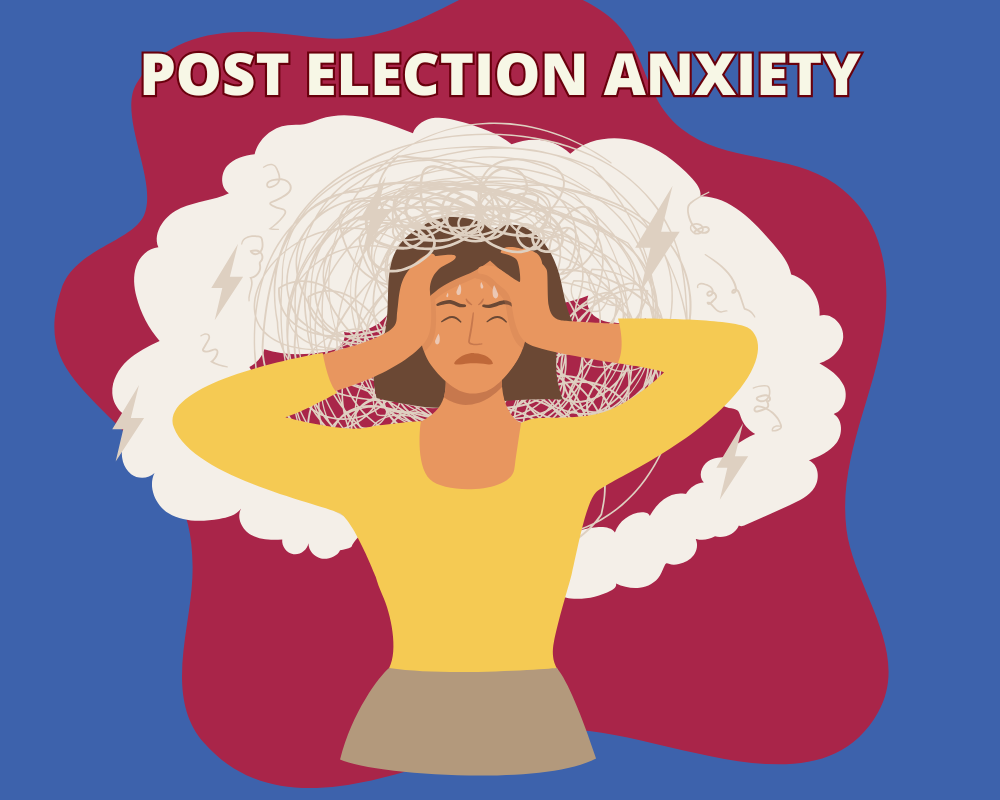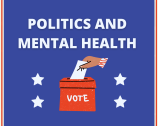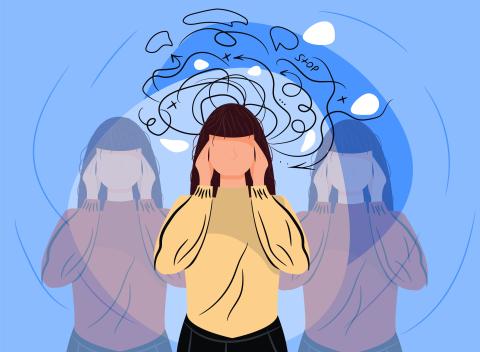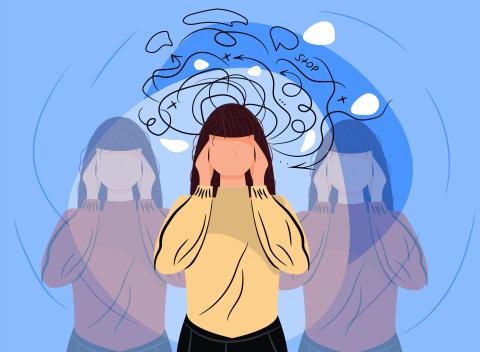Tips to Manage Post Election Anxiety
Tips to Manage Post Election Anxiety

In recent years, it seems like each presidential election leaves around half the country feeling anxious about the next four years. If you’re in that half following the recent election, know that there are a lot of things you can do to manage anxiety in a healthy way.
Behavioral Strategies
Firstly, here are some tips that involve your actions:
- Make conscious choices about how much time you spend listening, watching, or reading news about politics
- Limit doom scrolling
- Spend time doing things that are important to you, enjoyable, and unrelated to politics. For example, exercise, spending time with friends and loved ones, and connecting with your spiritual or faith tradition are all healthy ways to engage with life that are likely to improve your mental health.
Making changes like these isn’t about ignoring reality – it’s about taking good care of your emotional health.
Mental Strategies
Secondly, some strategies involve your mind:
One of the best mental approaches that can help with post-election anxiety comes from mindfulness. Post-election anxiety is driven by thoughts about what the future holds. Specifically, you may have thoughts about what will happen to you and your family and the United States post-election. Perhaps most people would agree that your thoughts are valid concerns; perhaps not. But here’s the thing: If your goal is to reduce your anxiety, it doesn’t matter if the thoughts are right or wrong. What matters is how you react when the thoughts come up.
Automatic vs. Deliberate Thoughts
There are two types of thoughts relevant to anxiety and I think it’s important to outline them before going into specifics about mindfulness for post-election stress.
The first type is automatic thoughts. They happen without any effort on our part. For example, my boss is going to kill me, or this is the best day ever! or she thinks I’m an idiot are all automatic thoughts. We can’t control them. But we do have some control over how we respond to them once we notice them.
The second type is deliberate thoughts. They happen due to our own efforts. Deliberate thoughts can be elaborations of automatic thoughts, rebuttals of them, or ways to solve a problem. For example, if an automatic thought is she thinks I’m an idiot, deliberate thoughts that follow could be: now we’ll never be friends, or she probably doesn’t care about me either way, or I need to explain what I meant, then she’ll change her mind.
You can reduce your anxiety by a) noticing when your thoughts have switched from automatic to deliberate, or b) noticing when the topic of your thoughts has turned to something you’re anxious about (e.g., politics and government). Next, once you’ve made either of these realizations, you can bring your focus back to what’s going on in the here and now – anchoring yourself in the present, rather than the future.
Anxiety is often triggered by negative thoughts about the future. From the perspective of mindfulness, thoughts are not reality – they’re just thoughts. In a way, thoughts are less real than what’s going on around you right now; what you see, hear, smell, feel and taste has a reality that your thoughts do not. So, focusing your attention on your sensory experience can be an effective way to disengage from your thoughts when you’re feeling overwhelmed and it feels like the thoughts have taken over.
Consider the feeling of being lost in a daydream for a few minutes – and then hearing your friend call your name. In that moment, you come back to the present and realize that your daydream wasn’t “real” in the same way as your friend talking to you. Similarly, you can practice noticing when worrisome post-election thoughts have hijacked your attention. When that happens, bring your attention back to the present and return to your senses (literally). Keep your attention there for a few seconds. Notice any temptation to re-engage with your recent train of thought. Then try to resist getting sucked back in. The more you practice this, the less prone you become to unintentionally getting re-absorbed into post-election anxiety.
Potential Questions About Using Mindfulness for Anxiety
You might be wondering whether this is just a fancy form of denying hard realities. It’s not – using mindfulness to manage anxiety does not prevent you from being concerned or informed about the relevant issues. It will, however, help you be in better control of your anxiety.
You might ask, “isn’t this advice essentially a recommendation to not think about what bothers you?” It’s a recommendation to combat the unhealthy habit of thinking about politics. It’s also an encouragement to notice that although it might feel like a troubling topic just sucks all your attention, in reality, you have “off-ramps” you can take at any moment.
Summing Up
There are several actions you can take and mindfulness-based mental strategies you can use that will help you lower your post-election anxiety. They’re likely to improve your anxiety levels and improve your overall mental health.
The author would like to acknowledge the contributions of Justin Arocho, PhD and Austin Harrison PhD to this blog.





















